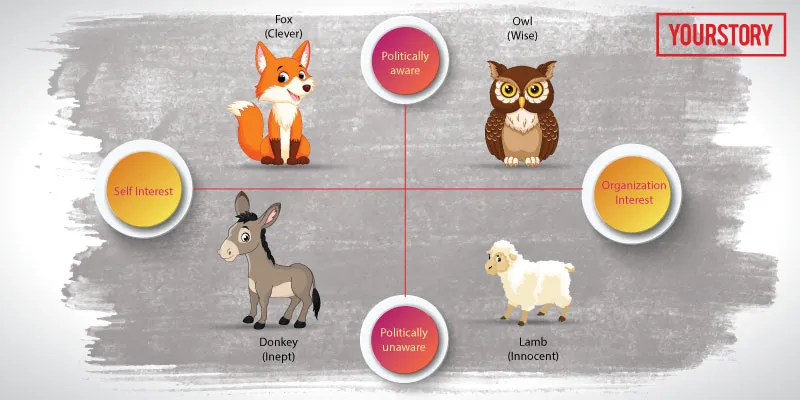Most of us have a negative association with the word ‘politics’ and the standard definitions of the word also reinforce it. The common definitions are:
“activities aimed at improving someone's status or increasing power within an organization”.
“the relationships within a group or organization that allow particular people to have power over others”
“competition between competing interest groups or individuals for power and leadership”
The common theme here is power and power is not a bad thing; it is the capacity to do something or act in a particular way; the ability to direct or influence the behaviour of others. And at the end of it, we all join organizations and roles to deliver a certain agenda. To be politically sensitive or savvy is an extremely critical ingredient is most organizations today. As an employee, especially a senior leader, you have to be able to read the ‘politics’ in an organization – how are decisions really made; who are the key influencers; what are the ‘formal’ & ‘informal’ ways of getting work done and know what is really happening in the organization.

Imagine this, there is a new leader in an organization undergoing a significant transformation; he/she comes with great credentials and experience; was found to be a perfect fit for the role when he/ she was interviewed but hasn’t been able to produce results in the new environment. He/ she possibly behaves like a bull in a china shop and faces a lot of push back / resistance to his/ her ideas. Familiar scenario? By contrast, there may be a set of new hires who expect that they might face resistance to their attempts to get things done differently but nevertheless keep on trying new things – some carefully handpicked initiatives (not all battles) and eventually tend to produce results that they were hired for.
In my mind, the biggest distinction between the 2 categories described above is the political awareness, savviness, sensitivity – call it what you may. I am sure many of us grapple with the realities of organizational politics. Truth is – it has to be navigated. The dilemmas we face may range from simple things like dealing with an egotistical boss who is averse to new ideas/ suggestions or building sponsorship for your breakthrough idea with your peers. If you are new, it could be about knowing whether dissent is acceptable in this company or dealing with combative stakeholders.
A couple of years ago I attended a training program that introduced a model of office politics and I came across a different version of it recently. It is possibly a good tool to understand personalities in office and manoeuvre organization politics. In this quadrant, the first dimension focuses on what is driving the person – is it pure self-interest or are they putting the interest of the organization / unit first? Are they acting with integrity or not? The other dimension is of political ‘awareness’ vs. ‘unawareness’. This dimension requires the ability to read people, their motivators/ agendas; power centres within & outside the organization etc. – and that takes effort, investment and practice (some of which comes with age & experience).
The two dimensions together give us the quadrant of office politics with 4 political animals.

In the top right hand corner are the politically skilled who are acting with integrity. They are the wise and we associate the owl with the wise. They are aware of their own purpose and the organizational purpose; they have good emotional intelligence & are observant; they know how to push their agenda; successfully form coalitions/ alliances and mostly target ‘win – win’ outcomes.
On the top left hand corner are the politically skilled who aren’t necessarily acting with integrity. Their main agenda is power and associating themselves with the nucleus of power. They also know how the organization works; the formal & informal power centres; they will negotiate / bargain hard to push their agenda and they are so charming while they are doing it. These are the clever; associated mostly with the Fox.
On the bottom right hand corner are the innocent; the lambs. They have a strong moral compass but are politically unaware to the extent of being naive - they don’t network or build alliances; find it difficult to get support for their agendas and they stick to the rules. They tend to rely on authority. More often than not; they are sacrificed at the altar.
In the bottom left quadrant are the politically unaware/ unskilled and with a very high sense of self-preservation/ interest. These are the donkeys – the inept. They have low interpersonal skills, are not necessarily high on ethics/ principles but want authority and power and go about trying to get it clumsily.
In reality, everyone including you may need to be a little bit of all these political animals at different occasions based on the circumstances. How you handle and respond to these different political animals will also vary. A leader who is a lamb not only runs the risk of being ignored but may also end up sacrificing his /her team. If your biggest stakeholder is a fox – how do you build an alliance; is focussing on “how you can make them look good” an option. What if you have a donkey in your team – how can you help them understand the way the organization works. And what is you think you are an owl – but because you have not made your intentions known; you are perceived as a fox!
I know many of us say that “I don’t want to get into office politics” - I was also that person. At the beginning of your career this may be a choice you can make but certainly not when you progress through the organizational hierarchy. This stance of steering away from office politics is largely because we associate office politics with something bad; look at it through the lens of political awareness/ savviness. In today’s world it is the key to survival and it doesn’t mean you are compromising your integrity.
This article was first published here.
(Disclaimer: The views and opinions expressed in this article are those of the author and do not necessarily reflect the views of YourStory.)







